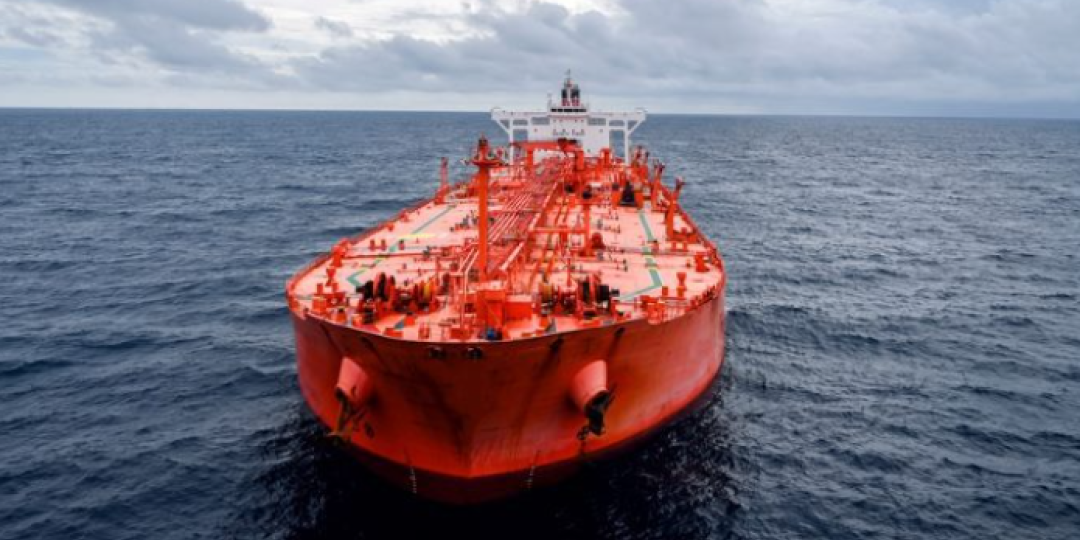The US Department of the Treasury’s Office of Foreign Assets Control (Ofac) has taken its first oil price cap enforcement action of 2024, targeting a shipping company linked to a price cap violation.
The US’s latest action, announced in a statement on Thursday, is the fourth round of sanctions targeting tankers and shipping companies for allegedly violating the price cap on Russian oil.
The US is using sanctions against shipping lines in an attempt to enforce the restrictions imposed on the Russian oil trade after its invasion of Ukraine, while also using sanctions to rein in Iran and its funding of the Houthis.
“Today’s actions once again demonstrate that anyone who violates the price cap will face the consequences,” said Deputy Secretary of the Treasury Wally Adeyemo.
“No one should doubt our coalition’s commitment to stopping those who help the Kremlin.”
The United States is part of an international coalition of countries (the Price Cap Coalition), including the G7, the European Union, and Australia, that have committed to prohibiting the import of crude oil and petroleum products of Russian Federation origin.
These countries have also committed to restricting a broad range of services related to the maritime transport of crude oil and petroleum products of Russian Federation origin, unless that Russian oil is bought and sold at or below the specific price caps established by the coalition or is authorised by a licence.
The “price cap” policy is intended to maintain a reliable supply of crude oil and petroleum products to the global market while reducing the revenues the Russian Federation earns from oil after its war against Ukraine inflated global energy prices.
On December 20, 2023, Ofac, in coordination with the Coalition, updated its Guidance on Implementation of the Price Cap Policy for Crude Oil and Petroleum Products of Russian Federation Origin, to strengthen the attestation and record-keeping processes for certain covered service providers and reduce opportunities for “bad” stakeholders to disguise Russian oil purchased above the cap, the office said.
The Price Cap Coalition also published a Coalition Advisory for the Maritime Oil Industry and Related Sectors advisory, which is directed at both government and private sector businesses involved in the maritime trade of crude oil and refined petroleum products.
Ofac said United Arab Emirates-based shipping company Hennesea Holdings (Hennesea) was the ultimate owner of 18 vessels, including the HS Atlantica, which it previously identified as having allegedly engaged in the transport of crude oil of Russian Federation origin, priced above the $60-per-barrel price cap. The company used a covered US-based provider after the price cap policy came into effect.
Ofac added that it had identified the HS Atlantica as property in which Hennesea’s subsidiary, US designated HS Atlantica, had an interest.
“Shortly before the price cap went into effect, Hennesea, which was established in late 2022, acquired older tankers that ship Russian crude oil and petroleum products. Tankers ultimately owned by Hennesea have repeatedly conducted port calls in Russian Federation ports,” Ofac said in the statement.
As a result of its action against Hennesea in terms of the sanctions all property and interests in property … that are in the United States or in the possession or control of US persons are blocked and must be reported to Ofac.
“In addition, any entities that are owned, directly or indirectly, 50% or more by one or more blocked persons are also blocked. All transactions by US persons in or within (or transiting) the United States that involve any property or interests in property of designated or blocked persons are prohibited unless authorised by a general or specific licence issued by Ofac, or exempt,” the office said.
The prohibitions include making any contribution or provision of funds, goods, or services by, to, or for the benefit of any blocked person and the receipt of any contribution or provision of funds, goods, or services from any such person.
Ofac said the ultimate goal of sanctions was not to punish, but to bring about a positive change in behaviour.













